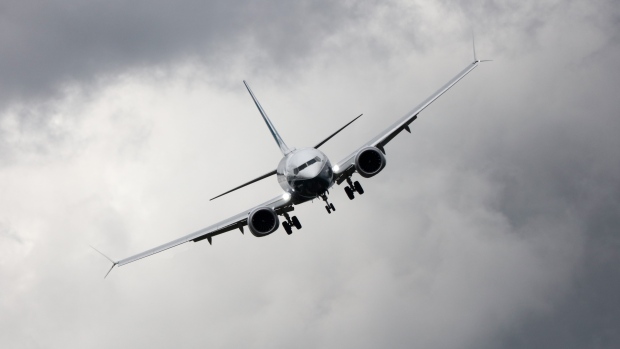Mar 27, 2019
Boeing crashes have 'shaken confidence' in aviation: U.S. Senators
, Bloomberg News

Senators opened a highly anticipated hearing on the crash of two Boeing Co. 737 Max airliners in five months, lauding the safety record of U.S. aviation but vowing to get to the bottom of the tragedies that killed 346 people and have shaken the confidence in the company and its regulators.
“The fact of the matter is that these crashes and subsequent reports on how the 737 Max was approved have badly shaken consumer confidence,” Texas Republican Ted Cruz, chairman of the Senate Commerce Committee’s aviation panel, said in his opening remarks. “In aviation, as in other industries where a small mistake can have catastrophic consequences, trust is the currency of the realm.”
The hearing is the first public forum to examine what has become one of the most high-profile aviation safety investigations in decades, prompting a federal criminal probe and multiple reviews of how Boeing’s new single-aisle plane was approved.
Federal Aviation Administration Acting Administrator Daniel Elwell told the senators that “We will take immediate and appropriate action” if evidence of safety issues emerges.
A Boeing 737 Max operated by Lion Air crashed off the coast of Indonesia in October. Flight data from the jet indicated that an anti-stall countermeasure repeatedly pushed the plane’s nose down before pilots lost control. Less than five months later, a second 737 Max crashed in Ethiopia, resulting in dozens of nations grounding the airliner.
But in Washington, the Federal Aviation Administration didn’t follow suit until March 13, after flights had been banned in more than 40 other countries. In a separate Senate hearing Wednesday, Transportation Secretary Elaine Chao defended that decision, saying the FAA had “no factual basis” to ground the 737 Max until March 13, when new evidence emerged showing similarities between the two doomed flights.
The crashes have put Boeing and the FAA under withering scrutiny, with multiple investigations being launched into the agency’s certification of the 737 Max and its reliance on FAA-designated company employees to certify the safety of much of the planes.
A key part of Elwell’s remarks emphasized that the FAA’s aircraft certification process has existed in some form for decades, including the involvement of companies in safety-approval work. That “delegation” is under scrutiny amid questions about whether FAA gave Boeing too much leeway with the 737 Max.


